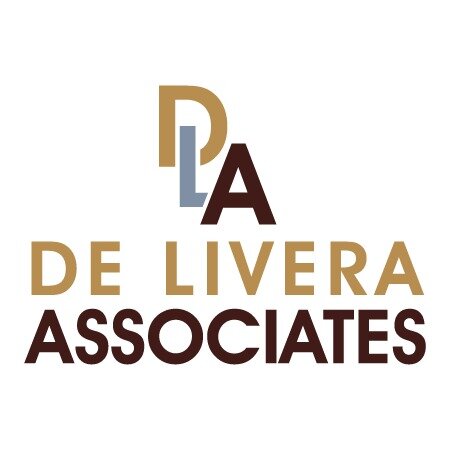Best Nonprofit & Charitable Organizations Lawyers in Sri Lanka
Share your needs with us, get contacted by law firms.
Free. Takes 2 min.
Or refine your search by selecting a city:
List of the best lawyers in Sri Lanka
About Nonprofit & Charitable Organizations Law in Sri Lanka
Nonprofit and charitable organizations play a crucial role in fostering social change and community development in Sri Lanka. The country offers a structured legal framework that governs the formation, operation, and administration of nonprofit entities. These organizations, often referred to as NGOs (Non-Governmental Organizations), can take various forms, such as societies, trusts, or companies limited by guarantee. The key aim of these entities is to address societal needs without the purpose of generating profits for shareholders.
Nonprofit and charitable organizations in Sri Lanka are primarily governed by the Voluntary Social Service Organizations (Registration and Supervision) Act, the Trust Ordinance, and the Companies Act for those registered as companies. These laws set the foundation for establishing, regulating, and maintaining accountability within nonprofit entities, ensuring that they serve public interests effectively.
Why You May Need a Lawyer
There are several situations when individuals or groups might require legal assistance related to nonprofit and charitable organizations in Sri Lanka:
- Formation and Registration: Establishing a nonprofit requires navigating various legal requirements, such as creating a constitution, articles of association, and registration with relevant authorities.
- Compliance: Nonprofits must adhere to statutory compliance, including financial regulations, reporting, and audits. Legal expertise ensures adherence to these obligations.
- Resolving Disputes: Misunderstandings or disputes within organizations or with external parties can necessitate legal mediation or resolution.
- Taxation Issues: Understanding tax obligations and exemptions available to nonprofit entities for efficient financial management.
- Dissolution: Legal guidance is crucial for the proper winding up of entities, ensuring that all obligations are fulfilled, and assets are distributed appropriately.
Local Laws Overview
Sri Lanka’s regulatory framework for nonprofit and charitable organizations includes several key laws and regulations:
- Voluntary Social Service Organizations (Registration and Supervision) Act: This act mandates the registration of NGOs, ensuring proper governance and supervision by the Ministry of Social Services.
- Trust Ordinance: Governs the creation and administration of trusts, providing a legal structure for managing charitable funds and activities.
- The Companies Act No. 7 of 2007: Offers provisions for forming companies limited by guarantee which many larger charities opt for due to its corporate governance structure.
- Income Tax Legislation: Offers provisions on tax exemptions available for nonprofit and charitable organizations that qualify under certain conditions.
Frequently Asked Questions
What is the process to register a nonprofit organization in Sri Lanka?
To register, you need to prepare a constitution or trust deed, fill out the relevant registration forms, and submit them to the relevant government authority, such as the National Secretariat for Non-Governmental Organizations.
Are nonprofits required to file annual reports in Sri Lanka?
Yes, registered nonprofit organizations must submit annual reports, including financial statements, to the respective governmental body overseeing them.
What are the tax benefits for charities in Sri Lanka?
Charities in Sri Lanka can avail themselves of certain tax exemptions on income generated from charitable activities, subject to specific conditions being met as outlined by the Inland Revenue Department.
Can foreign nationals establish a nonprofit in Sri Lanka?
Foreign nationals can establish nonprofits in Sri Lanka, but there may be additional regulations and compliance requirements related to foreign funding and operations.
What happens if an NGO fails to comply with local laws?
Non-compliance can result in penalties, suspension, or deregistration of the organization, and individuals responsible may face legal consequences.
Are there any restrictions on the types of activities nonprofits can engage in?
Nonprofits must engage in activities that align with their registered objectives and must not operate for the purpose of profit distribution among members or directors.
Do nonprofits need a board of directors in Sri Lanka?
Yes, nonprofits typically require a governing board or committee to oversee operations and ensure alignment with the organization's mission and compliance obligations.
How can a nonprofit organization be dissolved?
A nonprofit can be dissolved voluntarily by its members, or involuntarily by the regulatory authority for failing to comply with statutory obligations. The dissolution involves settling liabilities and distributing remaining assets as per the governing documents.
What role does the Ministry of Social Services play in regulating NGOs?
The Ministry is responsible for the registration, supervision, and coordination of NGO activities, providing guidelines, and ensuring compliance with statutory responsibilities.
Is it necessary for a nonprofit to have legal representation?
While not mandatory, legal representation can be invaluable in navigating complex regulatory requirements, ensuring compliance, and protecting the organization's interests.
Additional Resources
Here are some resources to consider for additional guidance and support:
- National Secretariat for Non-Governmental Organizations: Offers resources and support for NGO registration and regulation.
- Ministry of Social Services: Provides guidelines and regulatory oversight for social service organizations.
- Institute of Chartered Accountants of Sri Lanka (ICASL): Offers guidelines on financial accountability for nonprofits.
- Local Law Firms with NGO expertise: Provide specialized legal assistance tailored to the nonprofit sector.
Next Steps
If you need legal assistance with a nonprofit and charitable organization in Sri Lanka, consider the following steps:
- Identify Your Needs: Clearly define the issues or assistance you require.
- Consult with Experts: Engage with a lawyer or consultant experienced in nonprofit law in Sri Lanka.
- Prepare Documentation: Gather all necessary documentation and organizational details relevant to your legal needs.
- Engage with Local Authorities: Approach relevant government bodies for guidance and support.
- Plan for Compliance: Develop a roadmap for compliance with legal and regulatory requirements.
Engaging a legal expert can provide clarity and security, ensuring your organization's activities align with legal requirements and best practices.
Lawzana helps you find the best lawyers and law firms in Sri Lanka through a curated and pre-screened list of qualified legal professionals. Our platform offers rankings and detailed profiles of attorneys and law firms, allowing you to compare based on practice areas, including Nonprofit & Charitable Organizations, experience, and client feedback.
Each profile includes a description of the firm's areas of practice, client reviews, team members and partners, year of establishment, spoken languages, office locations, contact information, social media presence, and any published articles or resources. Most firms on our platform speak English and are experienced in both local and international legal matters.
Get a quote from top-rated law firms in Sri Lanka — quickly, securely, and without unnecessary hassle.
Disclaimer:
The information provided on this page is for general informational purposes only and does not constitute legal advice. While we strive to ensure the accuracy and relevance of the content, legal information may change over time, and interpretations of the law can vary. You should always consult with a qualified legal professional for advice specific to your situation.
We disclaim all liability for actions taken or not taken based on the content of this page. If you believe any information is incorrect or outdated, please contact us, and we will review and update it where appropriate.
Browse nonprofit & charitable organizations law firms by city in Sri Lanka
Refine your search by selecting a city.

















